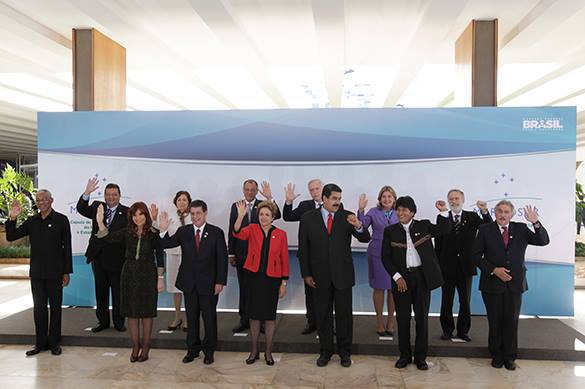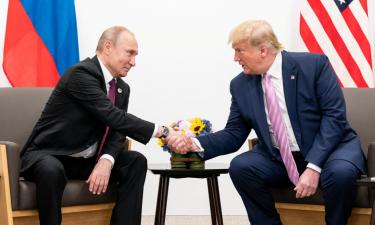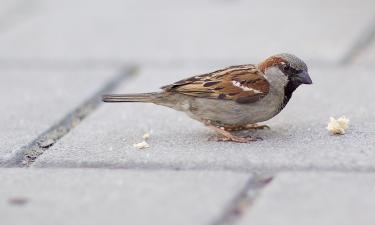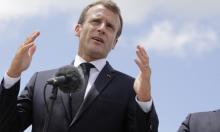Brazil: The Brain and the Brawn of the Coup is abroad
The former president of the Bar Association, Marcello Lavenère, who was one of the lawyers who signed the document on request of impeachment against former president Fernando Collor, said on Tuesday (3) that the "brain" of the move to frame President Dilma, without any crime, is from out of the country

Impeachment comes from abroad
He said the impeachment is not against a president, as in the case of Collor, but against the reduction of social inequalities, against the increase in income the value of the minimum wage and all the achievements of the last thirteen years - but also against independence of Brazilian foreign policy. In his presentation at the special commission that evaluates the impeachment gestated by Eduardo Cunha in the House of Representatives, Lavenère pointed out the disparities between what happened with Collor, where there was crime, and what is happening with Dilma, in the attempt to create a crime.
"It was proven that the former president practiced impropriety, received money in his accounts. He was a president who offended decorum. Today, the impeachment does not reach President Dilma. What it is trying is to end, annihilating a project with future, the project of inclusion, a project that became our most sovereign country," he said.
Coup constructed outside Brazil
Marcello Lavenère said that every day, inside and outside Brazil, the understanding grows about the construction of the coup, engineered by the opposition, with PSDB and DEM ahead, led by Eduardo Cunha, and the Vice-President Michel Temer, but will not be able to deceive the people for long. Even despite media support, no one can show that Dilma committed a crime of responsibility, because the narrative plot created based on the denouncement is unsustainable.
"I do not believe that senators, aware and sincerely, can say that tax pedaling, the crop plan and credit opening decree constitute crimes of the kind that international, Brazilian, American doctrine considers as the only crimes that can cause a process of impeachment, "he said.
For the lawyer, the position being taken at the extreme point of proposing the removal of the president looks very much like a doctor who prescribes heavy chemotherapy to someone who presents a cut on his hands. "The dose may kill the patient. It has terrible side effects that no doctor would recommend, heavy chemotherapy to those who do not suffer any harm in exactly the same nature. There is no crime whatsoever to justify the removal of the President of the Republic," he noted. Lavenère added that "those who lost the elections said 'this lady cannot be elected; and, if elected, cannot take possession; and if she takes office, cannot govern.' "
Killing a political project
According to him, what is going on is the political death of a future project. "It is the political death of a project that, for the first time in the history of this country in 500 years, turns towards the poor, turns towards an inclusion project, it is the application of the political death penalty not only to President Dilma, not only her coreligionists. They are applying the death penalty to the dreams of a country," he said to then add,"the clouds on the horizon are very black."
By Marcello Antunes, in the blog O Cafezinho
Translated by Ekaterina Santos
Pravda.Ru
Portuguese version
Editor's Note:
And if we see that Brazil has discovered potential reserves of oil and gas that could fuel the world's energy needs for the next five years, namely 176 billion barrels' worth, in the PreSalt layer off the shore, then does this put things in context? Now let us just imagine where the trail leads and whose greedy little fingers are dying to get into the pie.
Could it possibly be Mauretania, Mongolia or Myanmar? Or...?
Timothy Bancroft-Hinchey
Pravda.Ru
Twitter: @TimothyBHinchey
*Timothy Bancroft-Hinchey has worked as a correspondent, journalist, deputy editor, editor, chief editor, director, project manager, executive director, partner and owner of printed and online daily, weekly, monthly and yearly publications, TV stations and media groups printed, aired and distributed in Angola, Brazil, Cape Verde, East Timor, Guinea-Bissau, Portugal, Mozambique and São Tomé and Principe Isles; the Russian Foreign Ministry publication Dialog and the Cuban Foreign Ministry Official Publications. He has spent the last two decades in humanitarian projects, connecting communities, working to document and catalog disappearing languages, cultures, traditions, working to network with the LGBT communities helping to set up shelters for abused or frightened victims and as Media Partner with UN Women, working to foster the UN Women project to fight against gender violence and to strive for an end to sexism, racism and homophobia. A Vegan, he is also a Media Partner of Humane Society International, fighting for animal rights. He is Director and Chief Editor of the Portuguese version of Pravda.Ru.
Subscribe to Pravda.Ru Telegram channel, Facebook, RSS!





